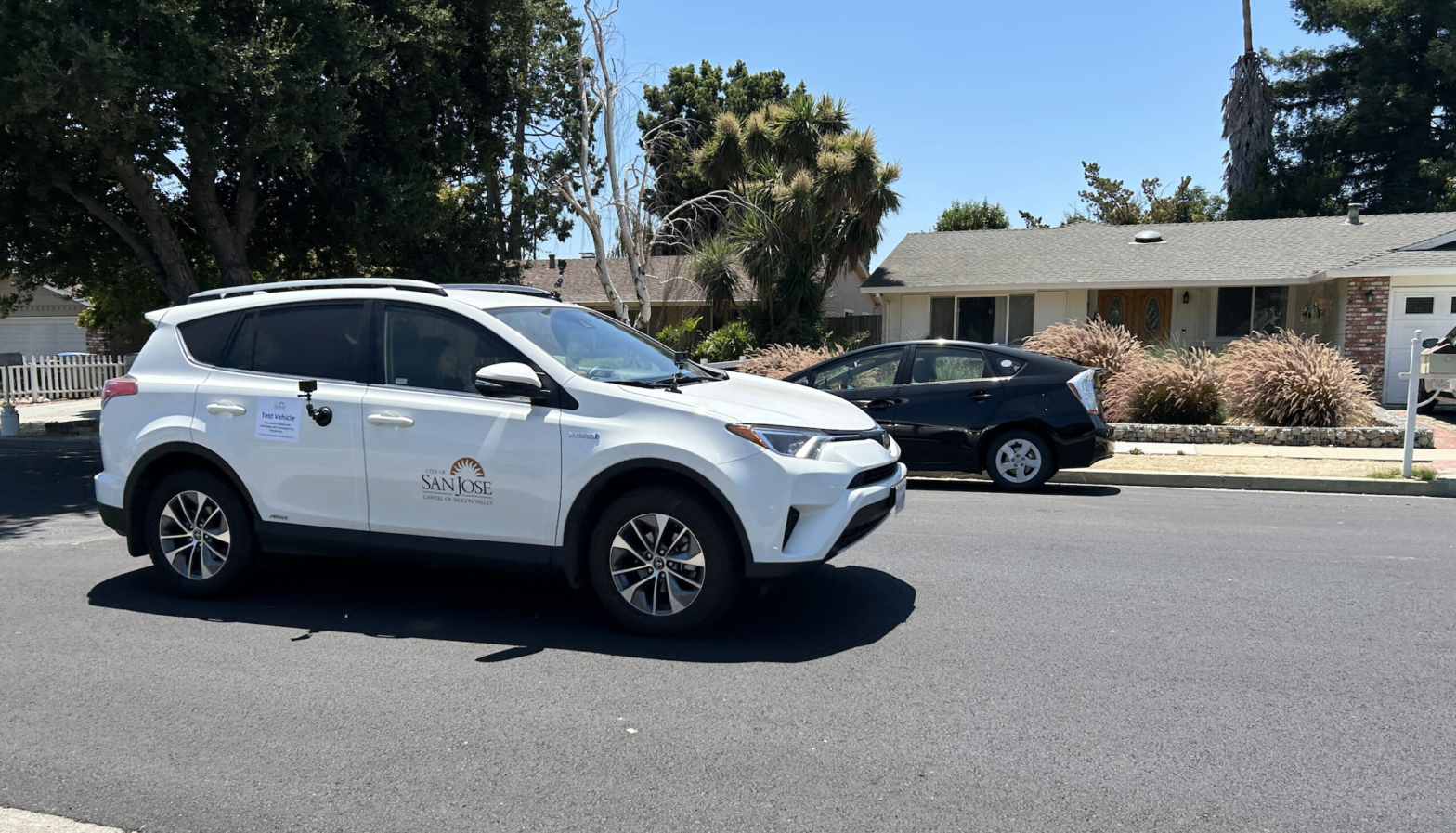
San José reports 97 percent pothole detection in AI pilot
11 September 2025
by William Thorpe
San José has reported accuracy rates of 97 percent for pothole detection and 88 percent for illegal dumping in the first stage of its Road Safety Conditions Pilot, an initiative using artificial intelligence (AI) and computer vision to improve street safety.
The city launched the Road Safety Conditions Pilot a year ago, as previously reported by Cities Today, with the aim of testing whether AI and computer vision could automatically detect hazards such as potholes, illegal dumping, and blocked bike lanes. The initiative funded through a US$260,000 grant from the Toyota Mobility Foundation and supported by US Ignite, outfits city vehicles with cameras that feed data into an AI model.
The goal is to move beyond reliance on residents reporting hazards through the San José 311 system and instead create a more proactive, automated process.
“The city hopes that this technology will support more proactive service delivery through San José 311 and reduce barriers for pedestrians, cyclists, and other non-motorised road users,” a city spokesperson told Cities Today.
The pilot is still in its evaluation stage, and officials emphasise that no operational changes have been made yet. But the city is already exploring how AI could reshape the way staff respond to hazards.
“One of the key goals is to explore how AI detection might lead to more efficient service delivery in the future,” the spokesperson said. “This includes learning how AI might help identify patterns, reduce delays in response, and support better planning for clean-up and repair of our city streets.”
At present, most hazards are reported through San José 311, which depends on residents taking the time to identify and submit issues. By integrating automated detection into that system, the city aims to reduce delays and improve planning for maintenance. The limited deployment planned for the coming months will begin testing this shift in practice.
Community engagement has been central to the project from the outset. The city has conducted webinars, online surveys, and in-person outreach, including at Viva CalleSJ, its Open Streets programme.
“Residents expressed strong interest in maintaining privacy and transparency, which led the city to adopt technical safeguards early on,” the spokesperson said.
All personally identifying information, such as faces, licence plates, and addresses, is blurred at the point of collection, and the city’s Privacy and AI team reviews all technologies under its Digital Privacy Policy and AI Policy. And public feedback has also helped determine what objects the AI should prioritise detecting.
“Engagement activities, such as digital surveys and upcoming outreach to bike advocacy groups, have guided which objects are prioritised for detection,” the spokesperson explained. This has meant a stronger focus on bike lane obstructions, reflecting concerns raised by cyclists.
As the pilot progresses, San José will continue working with academic partners from Stanford University, UC Santa Cruz, and San José State University. Researchers have helped refine data collection and build models to detect road objects such as cones and construction signs. The city has also established a dedicated data hub to support secure, transparent scaling of AI detection.
“The technology is still being tested,” the spokesperson said. “As the city rolls out a limited deployment of the technology, the Information Technology Department will evaluate the data and provide that information to the Department of Transportation for next steps and how this data can help our city initiatives.”
Image: US Ignite









